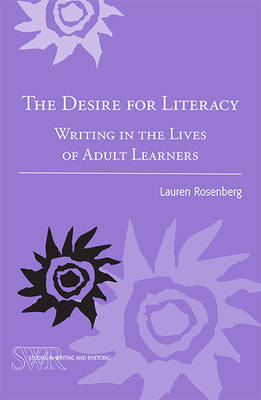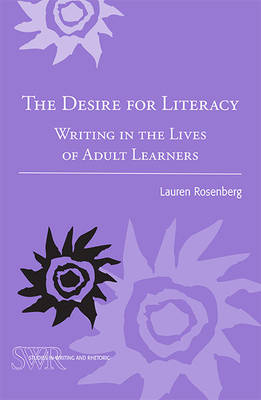
- Afhalen na 1 uur in een winkel met voorraad
- Gratis thuislevering in België
- Ruim aanbod met 7 miljoen producten
- Afhalen na 1 uur in een winkel met voorraad
- Gratis thuislevering in België
- Ruim aanbod met 7 miljoen producten
Omschrijving
The literate tend to take their literacy and all it affords them for granted; they are equally likely to assume that nonliterate people do not know, think, or understand in the ways they do, that the silence of nonliteracy is both intrinsic and deserved.
But as Lauren Rosenberg illustrates, marginalized adult learners are quite capable of theorizing about their position in society, questioning dominant ideas, disrupting them, and challenging traditional literacy narratives in American culture. In The Desire for Literacy: Writing in the Lives of Adult Learners, Rosenberg takes up the imperative established by community literacy researchers to engage with people in communities outside of formal schooling in an effort to understand adult learners' motivations and desires to become more literate when they choose reading and writing for their own purposes.
Focusing on the experiences, knowledge, and perspectives of four adult learners, she examines instances in which participants resist narratives of oppression, particularly when they become authors. Rosenberg's qualitative study demonstrates that these adult learners are already knowledgeable individuals who can teach academics about how literacy operates, not only through service-learning lenses of reflection and action, but also more radically in terms of how students, instructors, and scholars of composition think about the meanings and purposes of literacy.
Specificaties
Betrokkenen
- Auteur(s):
- Uitgeverij:
Inhoud
- Aantal bladzijden:
- 185
- Taal:
- Engels
- Reeks:
Eigenschappen
- Productcode (EAN):
- 9780814110812
- Verschijningsdatum:
- 12/08/2015
- Uitvoering:
- Paperback
- Formaat:
- Trade paperback (VS)
- Afmetingen:
- 213 mm x 140 mm
- Gewicht:
- 281 g

Alleen bij Standaard Boekhandel
Beoordelingen
We publiceren alleen reviews die voldoen aan de voorwaarden voor reviews. Bekijk onze voorwaarden voor reviews.












